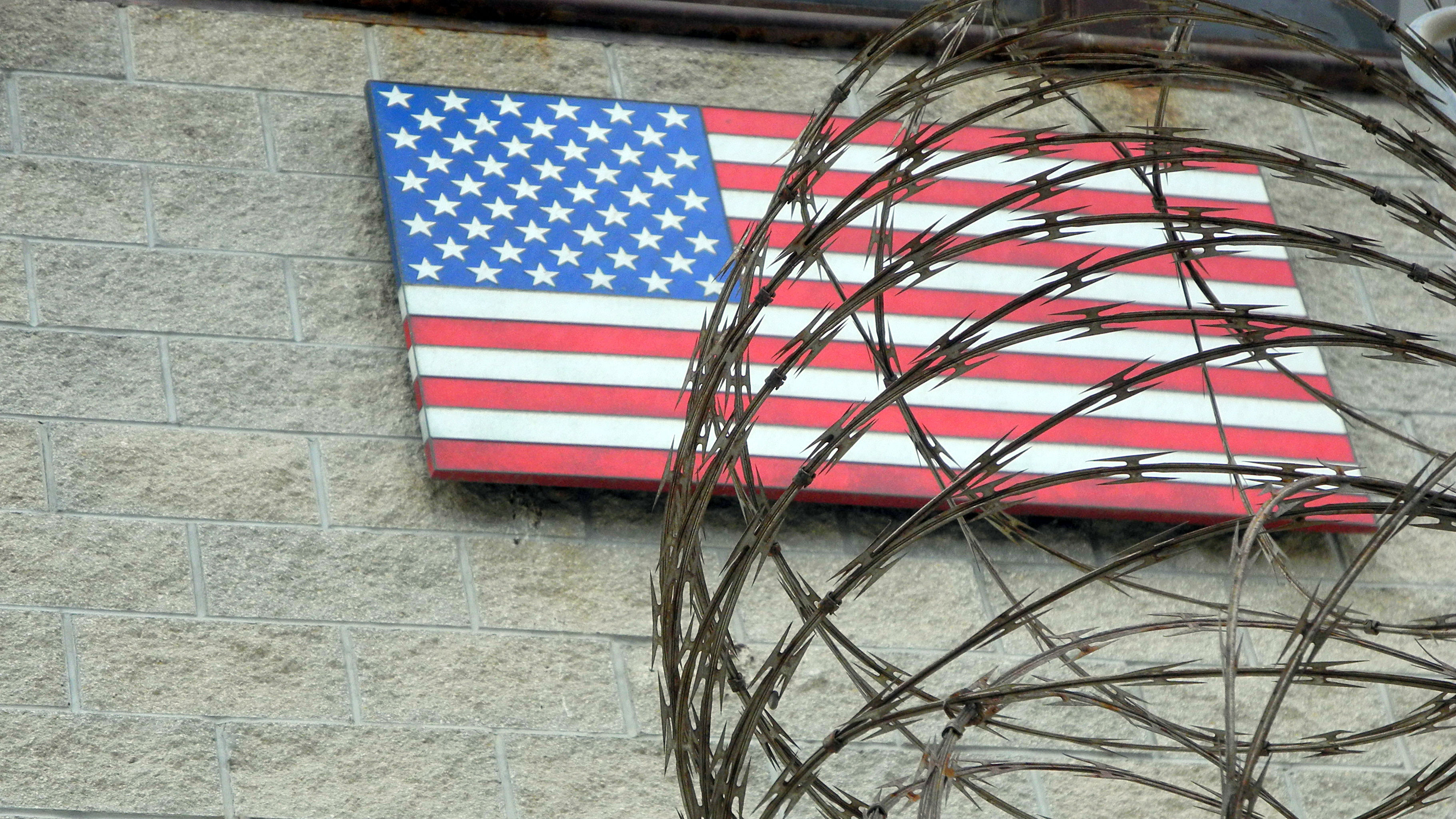Guantanamo Bay: As Obama releases more detainees, what is the future of the notorious prison?
While the President wants the camp closed, his successor Donald Trump has vowed to fill it with 'bad dudes'

A free daily email with the biggest news stories of the day – and the best features from TheWeek.com
You are now subscribed
Your newsletter sign-up was successful
Barack Obama is ramping up his release of inmates from Guantanamo Bay in the final days of his presidency.
Four former detainees landed in Saudi Arabia on Thursday and at least 18 more will be set free before Donald Trump arrives in the White House on 20 January, the Daily Mail reports.
The releases represent some last-minute successes for Obama, who has tried and failed for years to get the facility shut down. But with an incoming president who has sworn to pack Guantanamo with "bad dudes", what is the future for the notorious camp?
The Week
Escape your echo chamber. Get the facts behind the news, plus analysis from multiple perspectives.

Sign up for The Week's Free Newsletters
From our morning news briefing to a weekly Good News Newsletter, get the best of The Week delivered directly to your inbox.
From our morning news briefing to a weekly Good News Newsletter, get the best of The Week delivered directly to your inbox.
How many people are in Guantanamo Bay?
It is expected that there will be around 40 inmates in the prison when Trump takes the reins, the BBC reports.
That's significantly lower than the 242 held when Obama took over the presidency from George W Bush, who started sending political detainees there during the first years of the war on terror. It's also much lower than the peak of around 700 inmates.
However, it's almost impossible that the number will ever hit zero, mostly because some prisoners are deemed too dangerous to release, despite the fact they have not been charged with any crime.
A free daily email with the biggest news stories of the day – and the best features from TheWeek.com
Those who have managed to secure a release in the coming weeks will be sent to at least four countries, including Oman, Italy and the United Arab Emirates.
Why did Obama not just shut it down?
The reasons are complex, but his efforts were severely hampered by Congress blocking the transfer of any detainees to the US.
At the same time, his administration is often reluctant to release prisoners back into homelands such as Yemen because they fear they could return to terrorist activities and become impossible to track. Former Guantanamo detainee Ibrahim Qosi was freed to Sudan in 2012, but two years later, he was an al-Qaeda leader in the Arabian Peninsula, the Mail says.
Critics, however, say Obama should show more backbone in the matter. Former Pentagon official Rosa Brooks, now a constitutional law professor, told NPR last year the President should simply ignore the ban Congress has imposed on sending any Guantanamo detainees to the US for detention or trial.
The Guardian goes further and says Obama has mishandled the situation, partly by refusing to let go of Guantanamo practices such as holding military commissions for suspects rather than trying them in civilian courts. Human rights activists say such policies effectively make the shutting of Guantanamo meaningless.
Who are the current inmates?
Left inside Guantanamo are an accused senior al Qaeda bomb-maker and the terror group's top financial manager. There are also two intended 9/11 hijackers. All four have been there for more than a decade.
What does Trump say?
By all accounts, he's a fan, vowing during his presidential campaign to keep the detention centre open and "load it up with some bad dudes".
He also tweeted this week that there should be no further releases from "Gitmo", as the camp is nicknamed, as it held "extremely dangerous people" who "should not be allowed back onto the battlefield".
So the situation is not looking hopeful for those inmates still left by the time of his inauguration.
But, as the BBC says, "in the 15 years since Guantanamo was opened, the contours of America's war on terror have changed". Obama's administration was reluctant to send more prisoners to the facility, leading, some say, to policies that preferred killing rather than capturing suspected enemies.
Either way, the future of Guantanamo is now in the hands of Trump and a Republican-dominated government.